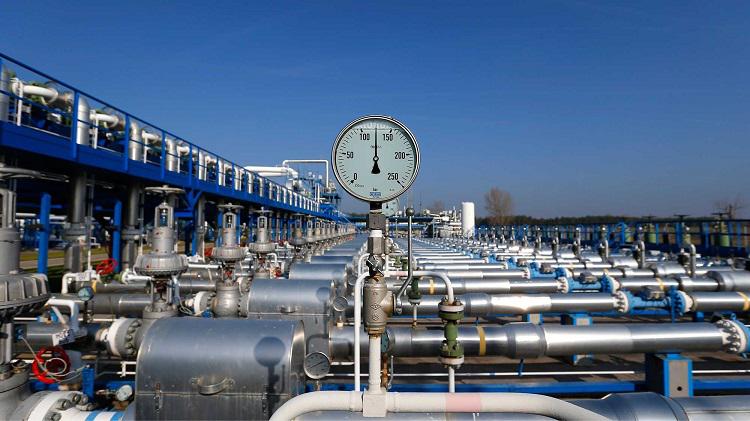nCa Report
During the EEF (Eastern Economic Forum) in Vladivostok, President Putin has commented on the natural gas trade.
As reported by Milena Bogdanova of Fakti.bg, he said, “The volume of supplies of Russian gas to Europe will be reduced if Ukraine refuses to transit it, but “that is their choice“”.
He said that in case of non-availability of the Ukrainian route, the gas may possibly go through other routes such as the Turkish Stream, and to some extent through the Blue Stream.
However, he noted that in such a situation the volumes of gas flowing to Europe would decrease.
He added that Russia would not be averse to the continuation of the gas transit through Ukraine.
The Russian media house Sputnik reports: Iran has long been asking Russia for gas supplies, this is a completely feasible project, Russian President Vladimir Putin said at a plenary session of the Eastern Economic Forum.
According to the Russian President, there may be different options for exporting gas to Iran. “There are different possibilities here, and we will develop different markets. We will work on swaps, we will liquefy, as I have already said, and so on,” Putin added.
He noted that Iran is one of the promising areas for restoring Russian gas export volumes. “We will gradually restore, of course, the volume of gas sales. There is no doubt about that. And we will develop our own economy,” the Russian president emphasized.
Putin also stated that the increase in gas supplies from Russia to China is not connected with the Ukrainian events, but with the growth of the Chinese economy. “I have already mentioned that we are reaching the design capacity for supplies to the People’s Republic of China. As for supplies to Central Asia and Iran, this is also not connected, I want it to be clear, this is not directly connected with the Ukrainian events,” Putin said.
Sputnik reports that in June of this year, Russia’s Gazprom and the National Iranian Oil Company (NIGC) signed a memorandum on developing the organization of Russian pipeline gas supplies to Iran.
Earlier in 2022, NIGC and Gazprom signed a memorandum of strategic cooperation, which provides for an analysis of cooperation opportunities in the following areas: development of oil, gas and oil fields in Iran, implementation of exchange operations with natural gas and oil products, implementation of large-scale and small-scale LNG projects, construction of main gas pipelines, scientific, technical and technological cooperation.
Later, in the fall of 2023, Iranian Oil Minister Javad Ouji reported that Tehran had identified joint projects worth $40 billion with Gazprom, was finalizing negotiations, and expected to soon put these projects into practice. At the same time, the Iranian side has repeatedly stated that gas supplies from the Russian Federation to the Islamic Republic could be swapped through Azerbaijan.
Oreanda-News says that Moscow is looking for new gas markets, and Iran can become a hub for the transit of Russian gas in the Middle East. This opinion was expressed by Iranian expert in the field of energy and oil industry Mohammad Sadek-Mehrju to RIA Novosti.
Russian President Vladimir Putin said at the plenary session of the Eastern Economic Forum on Thursday that the Iranian side has been asking Russia for gas supplies for a long time. According to the Russian president, this is a fully feasible project, given that the markets and gas needs in neighboring countries are huge.
He noted that Iran, due to its unique geographical and geo-economic position, is able to provide its territory for reliable export and transit of Russian gas.
“Iran can become a safe and reliable route for Russian gas exports. There are densely populated countries around Iran, such as Pakistan, Iraq, Turkey and Afghanistan, which can be good markets for gas sales. On the other hand, Iran is located on the coast of the Gulf of Oman and the Indian Ocean, which allows gas exports to India and East Asia through the creation of LNG infrastructure. Therefore, Iran, as a reliable partner with a privileged regional position, can become a gas hub in the Middle East region,” Sadek-Mehrju stressed.
In his opinion, both sides – Moscow and Tehran – “will benefit from this partnership”, it can contribute to the conclusion of new gas agreements between the two countries. Moreover, the development of new gas transit projects in the Asian region can reduce the negative impact of Western sanctions on both the Russian Federation and the Islamic Republic, the expert concluded. /// nCa, 6 September 2024
